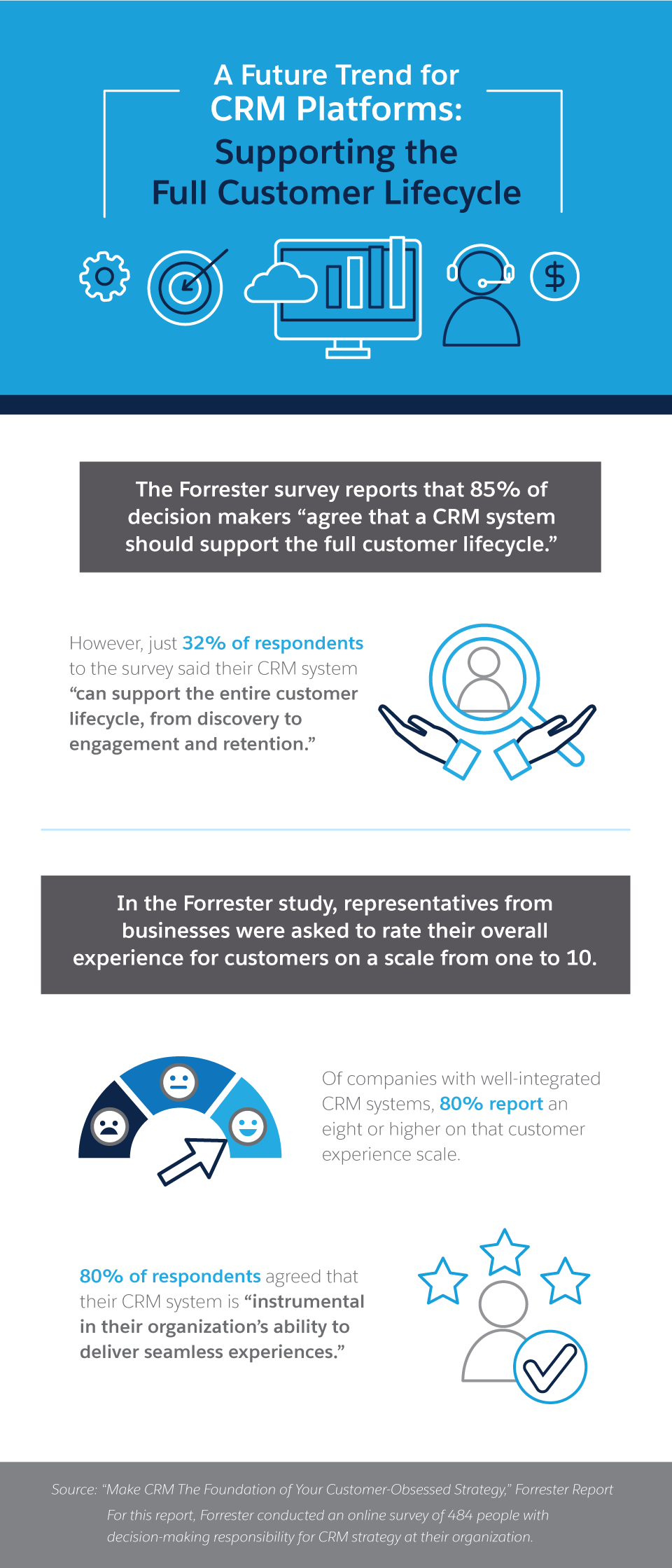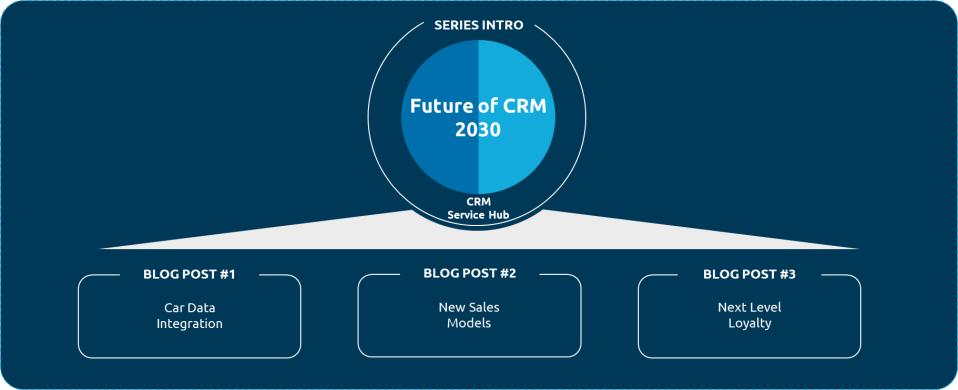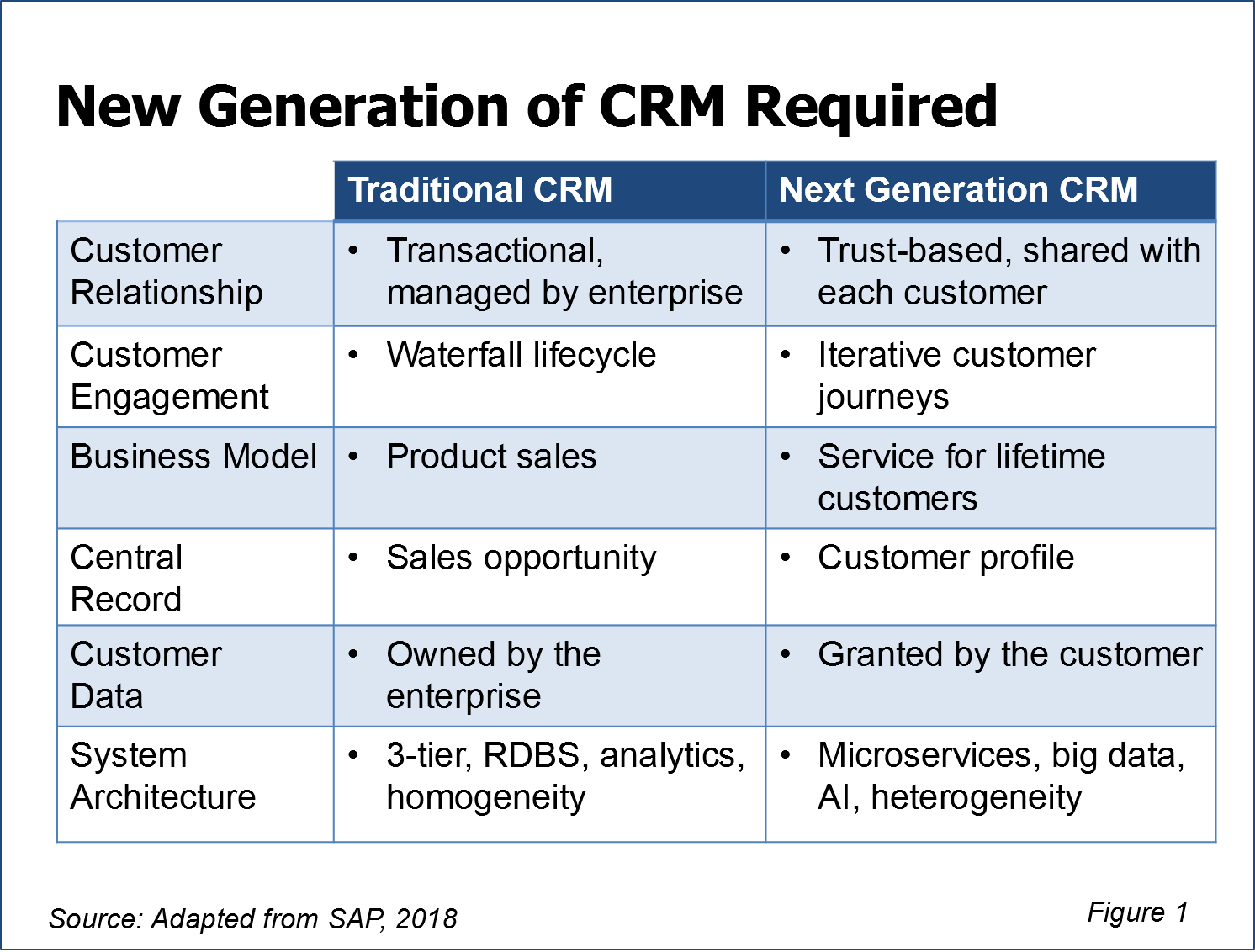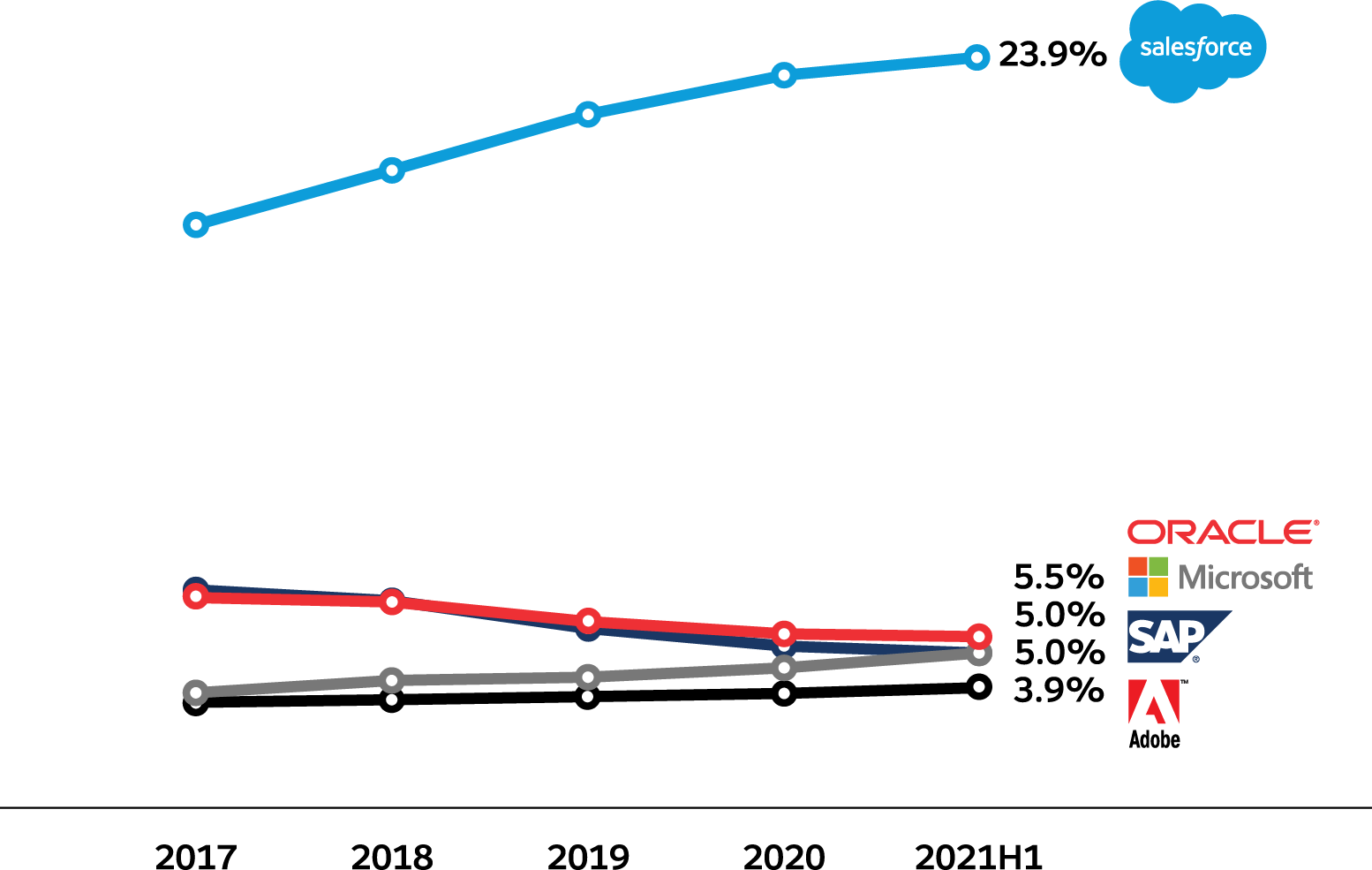In the rapidly evolving landscape of customer relationship management (CRM), 2024 is poised to witness a surge of transformative trends that will redefine the way businesses engage with their customers.
From the widespread adoption of artificial intelligence (AI) to the rise of headless CRM and composable architectures, the future of CRM holds immense potential for streamlining operations, enhancing customer experiences, and driving business growth.
In this article, we delve into the top CRM trends expected to dominate 2024, exploring their implications for businesses and offering insights into how companies can embrace these advancements to stay ahead of the curve.
The Future of Customer Relationships: Top CRM Trends Shaping 2024
Artificial Intelligence (AI) and Machine Learning (ML)
AI and ML are transforming the CRM landscape by automating tasks, enhancing customer insights, and personalizing interactions.
How AI and ML are impacting CRM:
| Feature | Impact |
|---|---|
| Lead scoring and qualification | AI algorithms analyze customer data to identify high-potential leads, streamlining sales processes. |
| Personalized recommendations | ML models suggest products and services tailored to individual customer preferences, improving sales conversions. |
| Predictive analytics | AI forecasts customer behavior, enabling businesses to proactively address needs and anticipate potential issues. |
| Customer service automation | Chatbots and virtual assistants powered by AI provide instant customer support and resolve queries efficiently. |
Customer Experience (CX) Optimization
Businesses are prioritizing customer experience as a key differentiator, leading to the adoption of CRM solutions that enhance CX across all touchpoints.
Key strategies for CX optimization:
| Strategy | Description |
|---|---|
| Omni-channel engagement | Creating seamless customer journeys across multiple channels, such as websites, mobile apps, social media, and email. |
| Personalized communication | Tailoring messages and offers based on customer preferences, demographics, and purchase history. |
| Customer feedback integration | Collecting and analyzing feedback to identify areas for improvement and enhance CX. |
| Customer journey mapping | Visualizing the customer experience from initial interaction to post-purchase engagement, optimizing touchpoints. |
Integration and Interoperability
Modern CRM systems are emphasizing integration with other business applications and data sources, creating a unified view of the customer.
Benefits of integration:
| Benefit | Description |
|---|---|
| Data consolidation | Integrating data from various sources (e.g., marketing automation, sales, customer support) provides a holistic view of customers. |
| Automated workflows | Streamlined processes by connecting CRM systems with other tools, minimizing manual intervention. |
| Improved decision-making | Access to comprehensive customer data enables businesses to make informed decisions based on real-time insights. |
| Enhanced customer experience | Seamless integration ensures a consistent and personalized experience across all touchpoints. |
What will be the future of CRM?

The Rise of AI-Powered CRM
Artificial intelligence (AI) is transforming various industries, and CRM is no exception. In the future, AI will play a significant role in enhancing CRM capabilities. AI-powered CRM systems will leverage machine learning and deep learning algorithms to automate tasks, personalize customer experiences, and predict customer behavior. For instance, AI can analyze customer data to identify patterns and provide insights that help sales teams close deals faster. It can also automate repetitive tasks, freeing up sales representatives to focus on more strategic activities.
- Predictive analytics will be used to anticipate customer needs and proactively offer solutions, enhancing customer satisfaction.
- Chatbots and virtual assistants will handle customer inquiries and support requests, providing instant and personalized responses.
- AI-powered automation will streamline workflows, reducing manual effort and improving efficiency.
The Importance of Data Integration and Security
As businesses collect more customer data, the importance of data integration and security will continue to grow. In the future, CRM systems will need to seamlessly integrate with other business applications, such as marketing automation, e-commerce platforms, and social media tools. This will enable businesses to have a unified view of their customers across all touchpoints. Furthermore, data security will be paramount. Businesses will need to invest in robust security measures to protect sensitive customer information from cyber threats.
- Data integration will allow businesses to access and analyze data from various sources, providing a comprehensive customer view.
- Data security will be crucial to protect customer data from breaches and maintain trust.
- Compliance with data privacy regulations will be essential, ensuring businesses handle customer data responsibly.
The Shift Towards Customer Experience
The focus of CRM is shifting from managing customer relationships to delivering exceptional customer experiences. In the future, CRM systems will be designed to empower businesses to create personalized and engaging experiences across all customer touchpoints. This will involve leveraging data to understand customer preferences, tailoring interactions, and providing seamless omnichannel experiences.
- Personalized customer journeys will be designed based on individual customer preferences and behavior.
- Omnichannel experiences will provide a consistent and seamless experience across all channels, such as websites, mobile apps, and social media.
- Customer feedback and insights will be actively collected and used to improve customer experiences.
What is the future of CRM in 2030?

The Rise of AI-Powered CRM
By 2030, AI will be deeply integrated into CRM systems, transforming how businesses interact with customers. This will lead to:
- Hyper-Personalized Experiences: AI will analyze vast amounts of customer data to predict preferences and behavior, enabling highly tailored interactions across channels. This will involve personalized product recommendations, targeted promotions, and proactive customer support.
- Automated Customer Journeys: AI will automate repetitive tasks, freeing up human agents to focus on complex issues. This will include automating lead qualification, appointment scheduling, and even drafting personalized emails.
- Predictive Analytics: AI will analyze customer data to anticipate needs and potential problems. This will allow businesses to proactively address customer concerns before they escalate, improving customer satisfaction and loyalty.
The Importance of Data Privacy and Security
As CRM systems become more sophisticated and reliant on AI, data privacy and security will become paramount. Businesses will need to:
- Implement Robust Security Measures: Protect customer data from breaches and unauthorized access using advanced encryption, access controls, and security protocols.
- Ensure Transparency and Control: Give customers clear visibility into how their data is collected, used, and protected. Allow customers to control how their data is shared and accessed.
- Comply with Data Privacy Regulations: Adhere to evolving data privacy regulations like GDPR and CCPA to maintain trust and avoid legal repercussions.
The Focus on Customer Experience
The focus of CRM will shift from managing transactions to creating seamless customer experiences. This will involve:
- Omnichannel Integration: Providing a unified customer experience across all channels, including web, mobile, social media, and physical stores. This will involve consistent brand messaging, personalized interactions, and seamless transitions between channels.
- Customer Feedback and Insights: Continuously gather customer feedback through surveys, reviews, and social media monitoring to understand their needs and expectations. Use this feedback to improve products, services, and customer interactions.
- Building Strong Customer Relationships: Focus on nurturing customer relationships through personalized communication, loyalty programs, and proactive support. The goal will be to create long-term customers who advocate for the brand.
What is the next generation of CRM?

Next-generation CRM is about delivering a personalized, omnichannel experience
The next generation of CRM is moving beyond basic customer relationship management and embracing a more holistic and personalized approach. It’s about understanding the customer journey across all touchpoints, from websites and social media to email and mobile apps, and delivering a seamless and personalized experience.
- Unified customer profiles: Next-generation CRM systems are designed to provide a single view of the customer across all channels and touchpoints. This means that businesses can access a complete picture of their customers’ interactions, preferences, and behaviors, enabling them to provide more personalized and relevant experiences.
- Artificial intelligence (AI) and machine learning (ML): AI and ML are transforming CRM by automating tasks, providing insights, and enhancing customer engagement. AI-powered chatbots can handle simple customer queries, while ML algorithms can identify patterns in customer data and predict future behavior. This allows businesses to proactively address customer needs and improve their overall experience.
- Customer journey mapping: Next-generation CRM systems help businesses map out the entire customer journey, from the first touchpoint to the final purchase. This enables businesses to identify areas of friction and opportunity, optimize their customer interactions, and create a more seamless and personalized experience.
Next-generation CRM is about leveraging data to drive growth and profitability
Beyond delivering personalized customer experiences, next-generation CRM systems are also designed to help businesses drive growth and profitability. By leveraging data and analytics, businesses can gain insights into customer behavior, identify new opportunities, and optimize their marketing and sales efforts.
- Predictive analytics: Next-generation CRM systems leverage predictive analytics to forecast customer behavior, identify potential churn, and predict sales opportunities. This enables businesses to make data-driven decisions that optimize their marketing and sales efforts.
- Marketing automation: CRM systems are increasingly being integrated with marketing automation platforms, allowing businesses to automate repetitive tasks, personalize marketing campaigns, and track the performance of their marketing efforts. This enables businesses to reach their target audiences more effectively and generate higher ROI.
- Salesforce automation: By automating tasks such as lead qualification, opportunity management, and sales forecasting, next-generation CRM systems help sales teams to be more efficient and productive. This allows businesses to close deals faster, increase sales revenue, and improve their overall sales performance.
Next-generation CRM is about being cloud-based and mobile-first
Next-generation CRM systems are increasingly being delivered as cloud-based solutions, offering businesses the flexibility and scalability they need to grow. They are also designed to be mobile-first, allowing employees to access customer data and manage their interactions from anywhere, anytime.
- Cloud-based architecture: Cloud-based CRM solutions offer several advantages, including lower costs, greater scalability, and improved security. Businesses can access their CRM data from any device and location, providing them with greater flexibility and efficiency.
- Mobile-first design: Next-generation CRM systems are designed with mobile users in mind, providing a user-friendly and intuitive interface that can be accessed from any mobile device. This allows sales representatives and customer service agents to manage customer interactions on the go.
- Integration with other business systems: Next-generation CRM systems are designed to integrate seamlessly with other business systems, such as ERP, marketing automation, and e-commerce platforms. This enables businesses to create a unified view of their customer data and streamline their operations.
What is the number 1 CRM in the world?

Defining «Number 1»
There’s no single, universally accepted «number 1» CRM in the world. The best CRM for a company depends on various factors, such as industry, company size, budget, and specific requirements. Different research firms and analysts use various metrics to rank CRMs, leading to different top performers.
Popular and Widely-Used CRMs
Some of the most popular and widely-used CRMs include:
- Salesforce: Known for its extensive features, scalability, and strong ecosystem of partners and integrations. It’s a leading choice for large enterprises.
- Microsoft Dynamics 365: Offers a comprehensive suite of CRM solutions tailored for different industries, with strong integration with Microsoft’s other products.
- HubSpot: Focuses on inbound marketing and sales automation, making it popular for small to medium-sized businesses.
- Zoho CRM: Provides a wide range of CRM features at various price points, catering to diverse business needs.
- Oracle Siebel: A legacy CRM system still used by many large organizations, known for its robust features and customization options.
Factors to Consider When Choosing a CRM
When choosing a CRM, consider these key factors:
- Functionality: Ensure the CRM meets your specific needs, such as sales automation, marketing automation, customer service, or project management.
- Integration: Check if the CRM integrates with your existing systems, such as your email platform, accounting software, or marketing automation tools.
- Scalability: Choose a CRM that can grow with your business, accommodating increased data volumes and user numbers.
- User-friendliness: The CRM should be easy to use and navigate for all users, regardless of their technical expertise.
- Support: Look for a CRM provider that offers excellent customer support and documentation.
Frequently Asked Questions
What are the top CRM trends in 2024?
In 2024, the CRM landscape is experiencing a dynamic evolution driven by technological advancements, evolving customer expectations, and the need for businesses to optimize their operations. Key trends shaping the CRM landscape include:
- Artificial Intelligence (AI) and Machine Learning (ML): AI and ML are transforming CRM by automating tasks, improving personalization, and providing insightful analytics. AI-powered chatbots and virtual assistants are enhancing customer interactions, while ML algorithms are analyzing vast amounts of data to personalize customer experiences and predict customer behavior.
- Customer Data Platform (CDP): CDPs are emerging as centralized platforms for managing and unifying customer data from various sources. By creating a single view of the customer, CDPs empower businesses to personalize interactions, deliver targeted marketing campaigns, and provide a more seamless customer experience.
- Customer Experience (CX) Optimization: CX is becoming a paramount priority for businesses. CRM solutions are increasingly focused on delivering exceptional customer experiences, incorporating tools for feedback collection, sentiment analysis, and omnichannel communication.
- Integration with Other Business Systems: CRM solutions are seamlessly integrating with other business systems, such as marketing automation, e-commerce, and accounting software. This interconnectedness enables businesses to streamline workflows, improve data visibility, and gain a holistic understanding of their customer journey.
How are AI and ML impacting CRM in 2024?
AI and ML are revolutionizing CRM by automating processes, personalizing interactions, and providing actionable insights.
- Automation: AI-powered chatbots and virtual assistants are automating routine customer interactions, such as answering frequently asked questions and resolving simple issues. This frees up human agents to focus on more complex tasks.
- Personalization: ML algorithms analyze customer data to identify patterns and preferences, enabling businesses to personalize marketing messages, product recommendations, and customer service experiences. This tailored approach enhances customer satisfaction and loyalty.
- Predictive Analytics: ML models can predict customer behavior, such as churn risk and purchasing patterns. These insights help businesses proactively address customer needs, improve retention rates, and optimize marketing campaigns.
What are the benefits of using a Customer Data Platform (CDP)?
CDPs offer several benefits for businesses looking to enhance their customer engagement and data management strategies:
- Unified Customer View: CDPs consolidate customer data from multiple sources into a single, unified profile. This comprehensive view enables businesses to gain a holistic understanding of their customers, their interactions, and their preferences.
- Improved Personalization: By accessing a complete customer profile, businesses can deliver personalized experiences across all touchpoints. This includes tailored marketing campaigns, relevant product recommendations, and personalized customer service interactions.
- Enhanced Targeting: CDPs empower businesses to segment their customer base based on demographics, behavior, and other attributes. This enables them to deliver targeted marketing campaigns to specific customer groups, maximizing campaign effectiveness and ROI.
- Data Governance and Security: CDPs offer robust data governance and security features, ensuring the privacy and protection of customer data. This is critical in an era of increasing data privacy regulations and concerns.
How can I choose the right CRM solution for my business in 2024?
Selecting the right CRM solution requires careful consideration of your specific business needs, budget, and future growth plans. Key factors to consider include:
- Industry Focus: Choose a CRM solution that caters to your industry’s specific requirements and challenges. Some CRM vendors specialize in specific sectors, offering tailored features and functionality.
- Scalability and Flexibility: Ensure the CRM solution can adapt to your business’s evolving needs. Consider factors like user capacity, data storage requirements, and integration capabilities.
- Ease of Use and Adoption: Select a CRM solution with a user-friendly interface and intuitive navigation. This will encourage user adoption and maximize the value of your investment.
- Mobile Accessibility: Ensure the CRM solution is accessible on mobile devices, enabling your team to manage customer interactions and data on the go.
- Support and Training: Look for a CRM vendor that offers comprehensive support and training resources. This will help you maximize the value of your investment and ensure a smooth implementation process.



